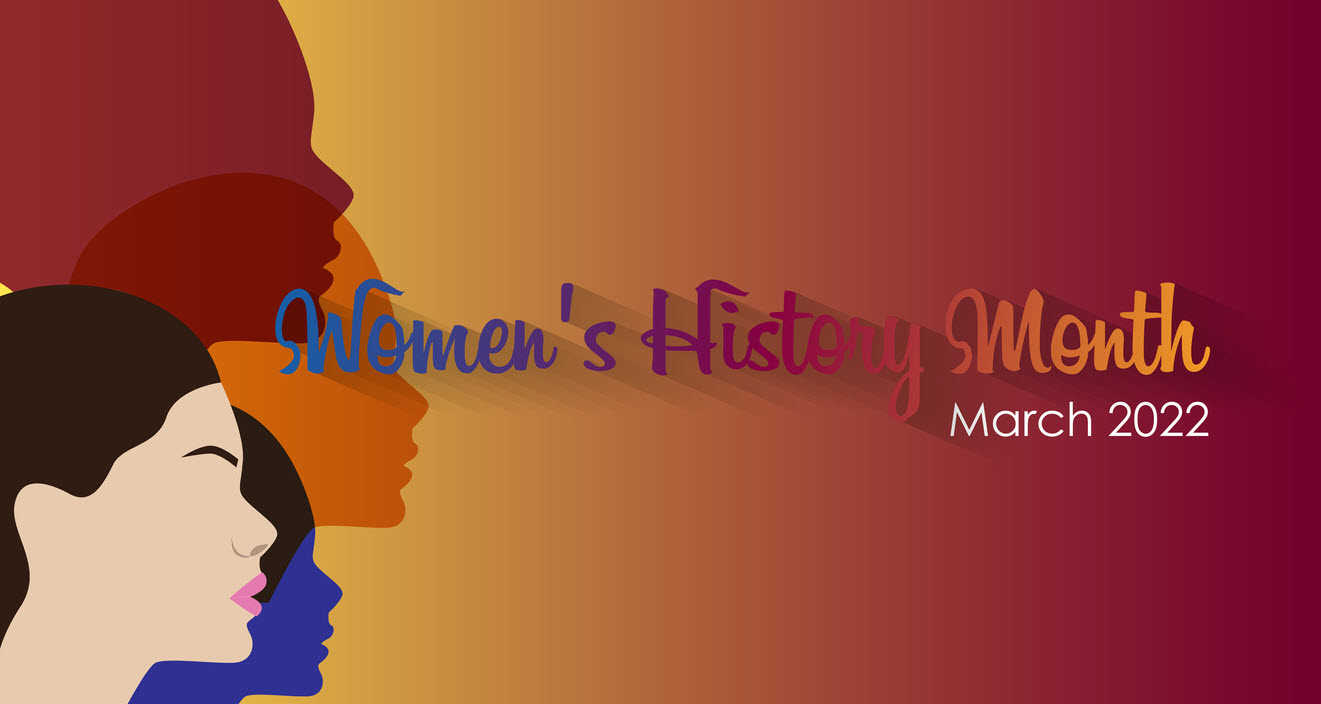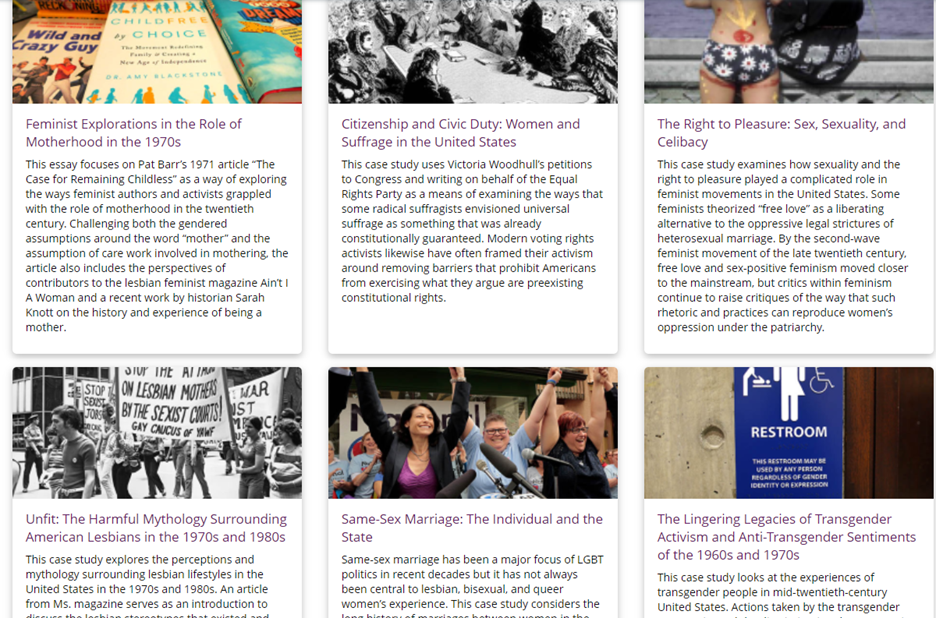| By Rebecca Parks |
March was officially designated Women’s History Month by the U.S. Congress in 1987 to recognize women’s contributions to history, culture, and society. Each year, the National Women’s History Alliance establishes a focus for this celebration of women. In recognition of the importance of caregivers and frontline workers during the COVID-19 pandemic, the theme for 2022 is “Women Providing Healing, Promoting Hope,” which encompasses modern-day heroines as well as “a recognition of the thousands of ways that women of all cultures have provided both healing and hope throughout history,” per the National Women’s History Alliance website.
Just ahead of Women’s History Month, Gale is releasing its newest module of the Gale Case Studies program: Women’s Issues. This curated collection of primary sources charts the struggles of cisgender and transgender women to gain equality in the workplace, in society, and before the law, from the nineteenth century through modern times. The primary sources are organized into case studies, with each case study focused on a particular topic, such as reproductive rights, suffrage, same-sex marriage, gender roles, discrimination against Black and Asian women, and transgender rights. Case studies in the module have an introductory essay that provides context for the primary sources, descriptions of the primary sources, and discussion questions that encourage students to make connections between past and current events.
Here are some of the connections between past and present that researchers can expect from Gale Case Studies: Women’s Issues:
- How the evolution of abortion as an accepted practice during the common-law era, to a medical issue in need of regulation in the nineteenth century (to protect women from unqualified abortion providers), to a moral issue in the twentieth century affects the current “abortion wars” that are still ongoing in the case study “Roe v. Wade: Reproductive Health, Abortion, and the Continued Debate”
- The similarity between the assumption by immigration officials that Asian women attempting to enter the United States in the late nineteenth and early twentieth centuries were destined for the sex trade and the rationale of the shooter who targeted Asian women working in day spas in Atlanta in 2021 in the case study “Asian Women and American Empire”
- The legacy of the policing of transgender women in the mid-twentieth century and its twenty-first-century equivalent in legislation to restrict transgender access to single-sex bathrooms in the case study “The Lingering Legacies of Transgender Activism and Anti-Transgender Sentiments of the 1960s and 1970s”
The theme of intersectionality is strong throughout the module. The case study “Power: The Position of Black Women” examines how Black women must contend with both racism and sexism, and how the stereotype of the “strong” Black woman is harmful. The case study “Voluntary or Forced Sterilization, Race, and the Law in America” further looks into the ways poverty and race led to Black women being disproportionately affected by programs targeting women for sterilization. The case study “Feminist Examinations of Mental Health and Mental Healthcare in 1972” touches on how the psychiatric profession treated lesbians in an era when there was a strong bias toward heterosexual norms.
Two other case studies include more on the unique challenges lesbians have endured. The case study “Unfit: The Harmful Mythology Surrounding American Lesbians in the 1970s and 1980s” examines how lesbians were initially shunned by a feminist movement fearful that lesbian stereotypes would hurt the overall cause. The case study also details the prejudicial treatment of lesbians in the legal system regarding family rights. This topic is given a deeper dive in the case study “Same-Sex Marriage: The Individual and the State.”
Gale Case Studies: Women’s Issues is designed with both seasoned researchers and those new to digital literacy in mind. The wealth of primary sources available allows search-savvy students to explore many different angles, while the product’s guided experience provides more direction to those who want it. The learning management system (LMS) integration, as well as the discussion questions that accompany each case study, make it an ideal classroom tool for courses in history, sociology, public policy, political science, communications, women’s studies, and LGBTQ studies.
Gale Case Studies: Women’s Issues joins existing modules Intersectional LGBTQ Issues, Public Health Issues, Political Extremism, and Race and Civil Rights. An additional module, Refugees and Migration, will be released next month.
Learn more about the Gale Case Studies modules >>




